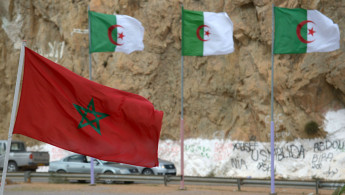'Sahara's Escobar': unravelling Morocco's largest scandal of drugs and politics
Since late December, the only thing Moroccans talk about is "The Pablo Escobar of the Sahara", a mysterious African drug lord who decided, after four years in prison, to expose his partners: more than twenty Moroccan politicians and public figures.
On 22 December, the Casablanca Court of Appeal ordered the provisional detention of 25 public figures implicated in a case dubbed "Sahara's Escobar case."
Pan-African Magazine Jeune Afrique reported yesterday, 8 January, that 28 Moroccan figures are implicated in the case. The francophone magazine has played a key role in the case since their first "Sahara's Escobar" investigation in 2019.
In a tumultuous turn of events, Moroccan political parties face a controversy that could jeopardise their parliamentary seats. Some opt for silence, while others hint at the possibility of a conspiracy.
Here's what we know so far about the "Sahara's Escobar":
Who is "Sahara's Pablo Escobar"?
El Hadj Ahmed Ben Brahim, nicknamed "The Pablo Escobar of the Sahara" or the "Malian," was born in Kidal, Mali, in 1976 to a mother of Moroccan origin and a Malian father. The only available picture of him is a sketch shard by Jeune Afrique.
According to the Pan-African magazine, the Malian led a simple life as a shepherd until, one day, he met a lost French man in the desert. This encounter changed everything.
The French man, revealed to be a businessman, introduced Haj Ahmed Ben Brahim to the import and export of cars between Europe and Africa.
After amassing a small fortune, the young Ben Brahim aimed higher, venturing into the gold trade and gradually building a network in the Sahelo-Saharan region.
After gold, he ventured in 2006 into the transportation of drugs from Latin America to West Africa via Mali and Niger, to Algeria, Libya, and Egypt by land or by sea to the Moroccan coast and then into Europe.
In Morocco, he reportedly invested significantly in real estate in Marina Saidia, a luxurious beach, and numerous businesses and factories have yet to be revealed.
In 2015, being the subject of an Interpol search warrant, he was arrested after a chase with the gendarmerie in the Mauritanian desert.
He was released four years later. He then decided to head to Morocco, where he allegedly maintained strong relationships with several political and security seniors, particularly in Oujada, northern Morocco, his mother's original city.
However, his godfather-like adventure ended in Casablanca airport in 2019 after an anonymous tip, and he was snatched up.
Now, four years later, he has decided to expose his ex-partners, reportedly after finding out that they seized his assets.
Who is implicated?
For the moment, only two accomplices' names were revealed: Said Naciri, head of the Municipal Council of Casablanca and the President of the Wydad AC, the oldest football club in Morocco, and Abdenebi Biioui, President of Oriental region (Oujda) and a powerful player in the country's infrastructure industry.
Both men are affiliated with the Modernity and Authenticity Party (PAM), a majority party in the coalition making up Morocco's current government.
In reaction, Abdellatif Ouahbi, head of PAM and Morocco's justice minister, submitted his resignation to the political bureau, assuming "political responsibility," yet it was rejected, according to Maroc Diplomatic.
Meanwhile, sources from the party say that Ouahbi is determined to sue all platforms that try to portray the party as a protector and sponsor of drugs.
"There are entities exploiting the file to undermine the party. It could be from the opposition or allies," a source from PAM told local media Hespress.
Last December, Biioui, Naciri, and 18 others were arrested and transferred to Casablanca's Oukacha prison. Four other suspects are being prosecuted while in provisional freedom.
For many Moroccans, the case is more than a drug network transforming into a political vendetta. The case fosters a new mistrust in politicians with influential positions within the kingdom who could be, if proven guilty, threatening the security of Moroccans and the country for their interests.





 Follow the Middle East's top stories in English at The New Arab on Google News
Follow the Middle East's top stories in English at The New Arab on Google News


